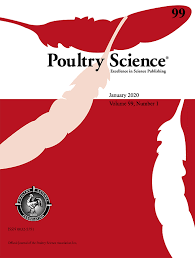Document type: Article published in Ouest France
Author: Fanette Bon
Preview: In recent years, farm animal welfare has become a political issue. This sensitive subject, chosen by the Space International Livestock Show for its 35th year which takes place in Rennes from 14 to 16 September 2021, calls for a scientific approach and objective assessments.
The crushing of male chicks and the live castration of piglets, both controversial practices, will be banned in France from 2022. In just a few years, farm animal welfare has become a political issue. A slew of announcements of measures to improve it appear in swift succession in response to the urgings of animal protection associations and members of the public who are shocked, and rightly so, by the violent images broadcast from farms that are far from representative.
But what is it that we are actually talking about? This highly sensitive subject calls for a dispassionate, scientific definition. Welfare encompasses an animal's physical health, but also its psychological wellbeing. We have to step outside ourselves to put ourselves in the place of the animal. According to the five freedoms principle established by the Farm Animal Welfare Council (FAWC) in 1992, animal welfare is determined by the absence of hunger and thirst; discomfort; pain, injury and disease; and fear and anxiety; and the freedom to express an animal's natural behaviours.
This approach, adopted by the World Organisation for Animal Health (OIE), is now a reference in the field. In addition, two types of indicators have been developed and validated through a European project called Welfare Quality. The first are based on the animal's environment (pen size, number of drinking troughs, etc.), while the second, which should be prioritised, concern the animals themselves (are they aggressive? comfortably lying down?, etc). This reference system makes it possible to carry out an objective assessment of animal welfare in the field, which is a key prerequisite for its improvement.
A constructive approach
The welfare of farmed animals will never attract unanimity. Abolitionist groups carry out actions that are sometimes extreme and cannot be left unpunished. Other organisations, known as welfare groups, work to improve the living conditions of animals without calling into question the very existence of animal farming. More discreet and often less known to the general public, they have built constructive partnerships with the agricultural sector.
Progress is real. In just a few years, all sectors have engaged with the issue. More than half of all laying hens are now raised outside cages. Welfare "labelling" is appearing on chicken packaging. Robots that provide massaging for cows are being installed in their accommodation. On-farm abattoirs are being piloted. And so on.
There is still room for improvement. Some practices should no longer exist. Solutions still need to be found, working with research institutes. But, although it may sometimes find itself on the defensive, the agricultural world is not in denial. The Space international livestock show, the major event of the agricultural season in the West and held from 14 to 16 September in Rennes, has chosen welfare as the theme of its 35th year. Demonstrations of innovative equipment and round tables are intended to help farmers make the right investments. Because the economic stakes are crucial. For example, "we estimate the cost of bringing an end to the rearing of caged laying hens to lie at €100,000 per farm, and €100 million for Brittany alone," says the director of a farming cooperative.
The additional costs are not yet sufficiently remunerated by the markets. Farmers need to be helped financially by the public authorities, who are promising support. Distributors also have a role to play. And at the end of the chain, consumers must be prepared to pay more for better quality food. Because these advances in attitudes to animal welfare come on top of the equally strong and impatient expectations of the public to help the environment and health. In the long term, it is the future of agricultural society that is at stake.




